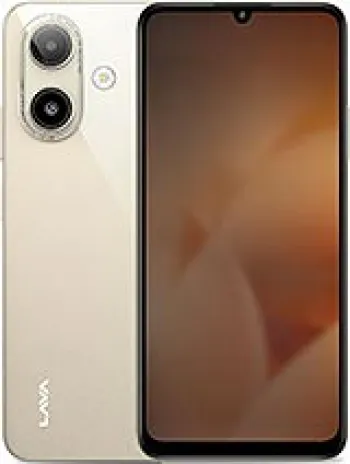
Overview of Lava A48
The Lava A48, announced and released in August 2016, is a budget-friendly smartphone designed to cater to the basic needs of users. Although it has been discontinued, the device offers a snapshot of mid-2010s technology with its accessible features and reasonable pricing. This comprehensive review will delve into the technical specifications, design elements, performance, and usability of the Lava A48.
Network and Connectivity
The Lava A48 supports GSM and HSPA network technologies. It provides 2G connectivity on GSM 900/1800 bands for SIM 1 and SIM 2, and 3G connectivity on HSDPA 2100 band. While it lacks support for 4G LTE, the device is still capable of delivering satisfactory performance on HSPA networks. Connectivity options include Wi-Fi 802.11 b/g/n, Bluetooth 2.0, and a microUSB 2.0 port, ensuring users can stay connected in various environments.
Design and Build
The device sports dimensions of 125.8 x 64 x 9.9 mm and weighs 116.4 g, making it compact and lightweight. Its portable form factor is ideal for users seeking a device that’s easy to handle and carry. The Lava A48’s design accommodates a dual SIM setup, providing flexibility for users who need to manage two numbers on one phone. Available in White, Champagne, and Blue, it offers some variety in terms of aesthetics.
Display
Featuring a 4.0-inch TFT capacitive display with a resolution of 480 x 800 pixels, the Lava A48 ensures a moderate visual experience with 256K colors. The screen-to-body ratio is approximately 56.6%, which is typical for devices from its generation. With a pixel density of around 233 ppi, the display delivers adequate clarity for basic usage, though it may not satisfy users looking for high-definition visuals.
Platform and Performance
Running on the Android operating system, the Lava A48 is powered by a quad-core 1.2 GHz CPU. This configuration provides sufficient processing power for everyday tasks such as calling, texting, and light browsing. The device's performance is complemented by 512MB of RAM, which, while limited by today’s standards, is adequate for navigating the installed applications and essential functions.
Storage
With 8GB of internal storage, the Lava A48 is primarily designed for users with modest storage needs. For those who require more space for media and applications, expansion is possible via a microSDHC card, offering a practical solution for spreading out digital content without compromising the device's functionality.
Camera Capabilities
The Lava A48 is equipped with a 2 MP main camera accompanied by an LED flash, allowing for basic photography and video recording. Additionally, the device includes a front-facing VGA camera, offering an option for video calls, albeit with minimal quality. While these camera specifications are not designed for professional-grade photography, they sufficiently cater to simple point-and-shoot needs.
Audio and Multimedia
The device is equipped with a loudspeaker and a 3.5mm audio jack, retaining the versatility to connect with various audio devices. Despite its budget-oriented design, users can enjoy casual music listening or hands-free calls via the audio jack. The inclusion of an FM radio is another aspect that adds value, particularly for users who enjoy tuning into radio broadcasts.
Comms and Sensors
In terms of communication capabilities, the Lava A48 supports Wi-Fi connectivity (hotspot capable) and Bluetooth 2.0. These features allow for seamless sharing and internet connectivity options. Notably, the phone lacks both GPS positioning and NFC, limiting its applications in navigation and modern contactless communication. The device includes an accelerometer sensor, used for screen orientation adjustments and basic motion-detection applications.
Battery Life
The device draws power from a Li-Ion 1300 mAh removable battery, adequate for users with moderate phone usage. Given the device's basic hardware, the battery capacity can sustain daily tasks like calling and texting with ease. Users can expect to charge the device frequently if engaging in resource-heavy applications or extended multimedia use.
Final Thoughts
The Lava A48 was a device aligned with the needs and budgets of its time. For users transitioning to smartphones or those requiring a secondary device, it offered a cost-effective solution. Despite its discontinuation and outdated specifications by today's standards, it reflects a period in mobile communication where essential connectivity and basic functionality were prioritized over cutting-edge technology.
Main Features of Lava A48
- Dual SIM capability for managing two phone numbers.
- Lightweight design with a weight of only 116.4 g (4.09 oz).
- Compact 4.0-inch display for easy one-hand use.
- Quad-core 1.2 GHz processor for basic tasks.
- Expandable storage option via microSDHC card slot.
- LED flash support for the main 2 MP camera.
- FM radio for listening to local stations.
- Availability in multiple colors: White, Champagne, and Blue.
Disadvantages of Lava A48
- No 4G LTE support, limited to GSM / HSPA.
- Discontinued status, which means no longer officially supported or easily available.
- Low screen resolution with 480 x 800 pixels, leading to lower display quality.
- Limited internal memory of 8GB, with only 512MB RAM which may not support modern apps well.
- Basic camera setup with a 2 MP main camera and VGA front camera, limiting photo and video quality.
- No GPS support, limiting navigation capabilities.
- Bluetooth version 2.0, which is an outdated version that may not support newer devices effectively.
- Small battery capacity of 1300 mAh, possibly leading to shorter battery life.

View Also
More Phones
All Rights Reserved +14266 Phones © Mobilawy 2025

























